Tartu, together with Southern Estonia, is the European Capital of Culture in 2024. This is an immense opportunity and a great challenge for Tartu and Southern Estonia. We knew from the beginning it would mean producing hundreds of events for different audiences. Keen to involve plenty of young creators and organisers in the Tartu 2024 program, we created the Tartu 2024 Extended initiative. Tartu 2024 Extended will focus on engaging young people (14 to 19 year-olds) through culture and art and will incorporate digital elements. So far, as of autumn 2023, 50 young people have participated in this developmental process, creating events for over 4000 people. A particular focus will be on strengthening transversal cooperation between the fields of culture and youth work, enabling us to talk about difficult topics in creative ways.
What is Tartu 2024 Extended?
Youth participation in cultural events and in social activities is low in general. Tartu 2024 Extended aims to foster collaboration between organisations supporting young creatives, active citizens and artists involved in the European Capitals of Culture and to provide young people with new learning opportunities to become more entrepreneurial and creative and better-equipped with cultural participation skills. In this way, we can raise awareness of the cultural field as a potential career choice for youth. Through informal learning, we combine best practices in youth work with cultural activities. This contributes to the development of creativity, team-work and problem-solving in participating countries and youth programmes.
Youth work initiatives tend to be very local, village- or city-based. During Tartu 2024 Extended we want to raise awareness of the internationality of youth work. There is a definite lack of methodology when it comes to working internationally and bringing together different cultural activities. All our cities are home to youth from multicultural backgrounds – not least Ukrainian refugees – who are also keen to be part of organising youth events.
Through this project we want to strengthen international collaboration between culture and youth programmes in the European Capital of Culture framework in order to increase the inclusion of young people, to identify new innovative methodologies and practices, and to have a positive long-term impact on the participation of young people in the creative processes and organisation of cultural events in Europe. By publishing guidelines and by maintaining a long-term European Capital of Culture (ECOC) capacity building network, we seek to highlight the internationality of youth work and facilitate transversal cooperation between the culture and youth fields.
With this project we hope to overcome physical distance and bring our youth into the European dimension, working together in international teams. Data shows that there has been a demographic decline in youth in the regions and the lack of “youth voice” or youth leaders in cultural management decision-making is a significant problem in our cities. We believe that through cultural events and participation we can give young people the opportunity to take the initiative. The European Capital of Culture (ECoC) designation provides a boost both for the city that holds the title and for the whole region.
Tartu 2024 Extended Methodology
The aim of European Capital of Culture Tartu 2024 is to develop the cultural community and, in particular, to invite young people to get involved and to host cultural events. The goal of Tartu 2024 Extended is to increase the cultural management skills of 14- to 19-year-olds in southern Estonia through learning, doing and sharing. Our programme encourages young people to take responsibility for their surroundings and cities. It challenges them to start developing the – cultural, social and ecological – environment of their city, to create the kinds of places they can see themselves living in the future, and thus begin shaping their own future.
Through professional development workshops and seminars, as well as active involvement in multicultural teams and international cultural youth events, young people from our 19 partner municipalities will learn about self-efficacy and will begin to understand the importance of their role in active citizenship in Europe. They will be given the tools and skills to help them shape their environment through culture and are encouraged to share these skills with their peers. We encourage young people to take the initiative to shape their own cities, build intercultural dialogue and share different approaches to ensure that young people understand that their participation is both welcome and vital for a healthy society.
Tartu 2024 Extended is a developmental programme which consists of seven in-person sessions.
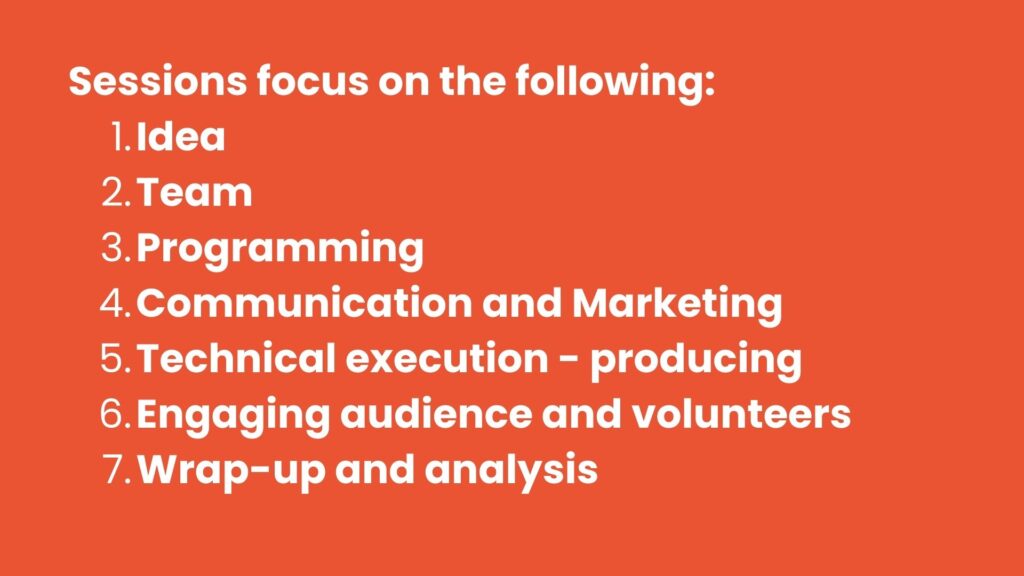
In the Tartu 2024 Extended programme, participants explore how to develop projects, how to put together a team and how to plan and implement an event. Festivals organised by our young participants took place in June 2022 and June 2023 and a third will be held in June 2024. Since programme participants live in different places, most planning is done via digital platforms, necessitating the use of digital project management platforms such as Google Drive, Telegram or Discord.
Every event has to be marketed and promoted via the web, and we hold seminars dedicated to exploring how to make your event more engaging online. Each team creates their own brand, their own Facebook event, Instagram post and website, and this involves using digital tools. Our main platform for design is Figma.
Together with cultural management skills we encourage the young participants to think about ways to engage people via the web. This could mean making art on the digital platform, making art accessible via the website and reflecting on digital platforms. Another important element is event production, which requires special technical skills. We have agreed that young people are responsible for producing all the events.
The first Tartu 2024 programme took place in April 2022-June 2022. The second round was held October 2022-June 2023 and the third will be October 2023-April 2024. With 3 rounds and around 75 young participants, we will deliver 3 big events and over 20 smaller events for young people in southern Estonia.
In 2024, the participants will organise Tartu Youth Party, a unique initiative in Tartu bringing together children and young people to enjoy their free time together. The participants will also organise Youth Festival in the summer and International Youth Day on the 12th of August. Young people will be responsible for the whole production, including lighting, sound and technical construction
Some examples of events produced by young people:
Uuspärimusfestival – New Heritage Festival
The New Heritage Festival brought together technology and local traditions. The team of three behind the event wanted to do something that would resonate with visitors and make their eyes shine. Right from the beginning, it was clear that they wanted to organise an event in the countryside, outside of Tartu, and focus on South Estonia more broadly.
The event offered the chance to try your hand at both modern and traditional workshops, from robotics to floristry. There were performances by music and dance artists, and an open discussion group at the National Archives on the topic: “How to connect with your roots?” The evening ended with a performance by headline act Oopus, who also gave a talk about creating music today using different technologies.
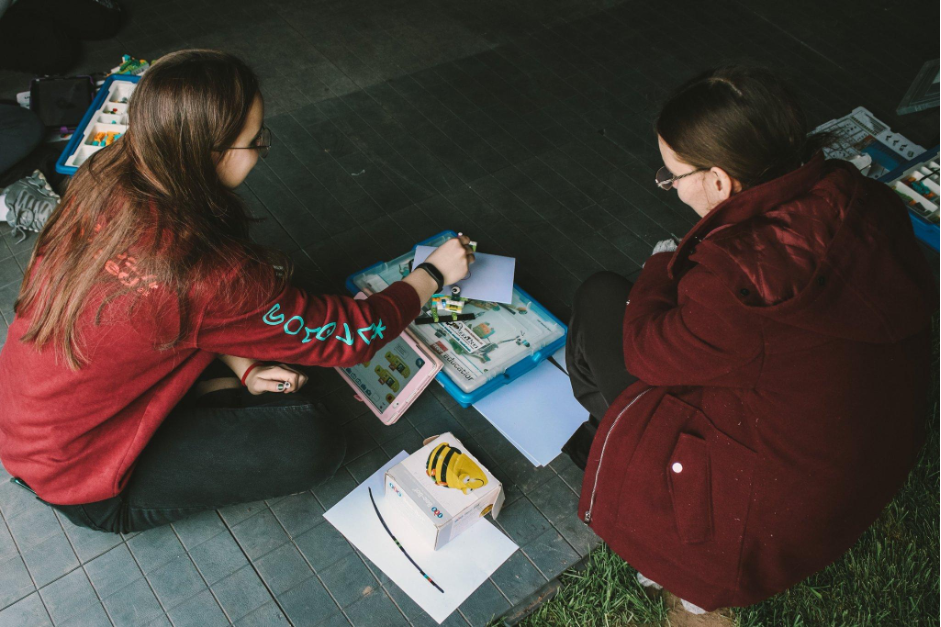
Tartu 2024 Risti-Rästi Festival
In June 2023, 24 young people organised the Risti-Rästi (Criss-Cross) Festival in Tartu and Southern Estonia. The programme brought together roleplay games, design, a charity ball, a concert programme, a dance battle, an underground rave party and discussions about startups and investing. These activities were all the work of young people, from brainstorming through to production. The organisers located venues, found speakers / performers, secured technical equipment, designed the posters, ran social media campaigns and gave interviews to the media.
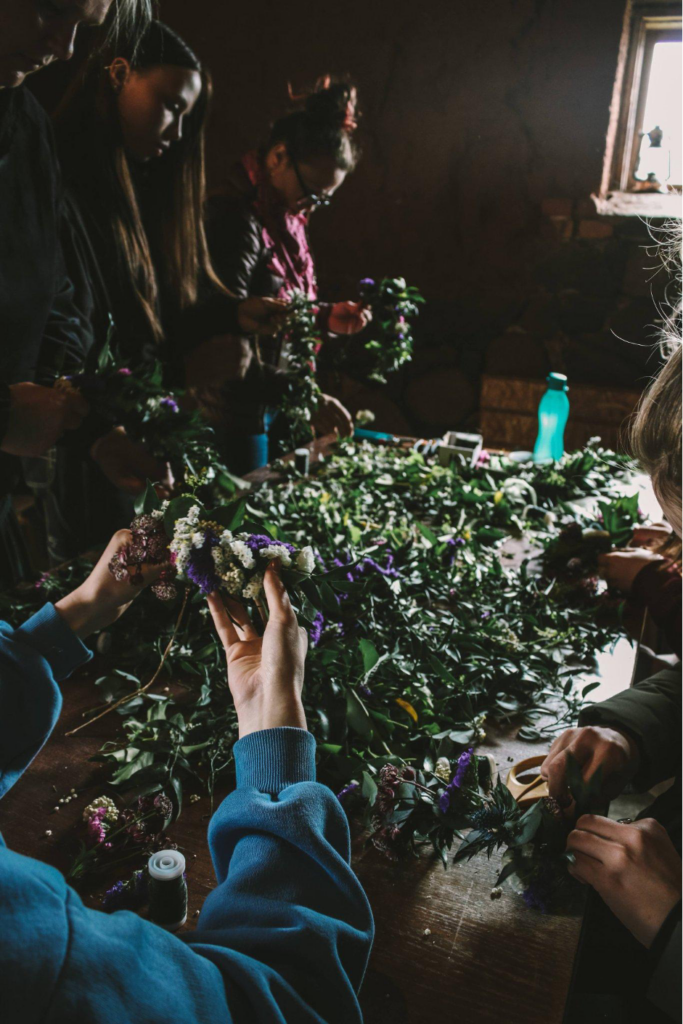
Experiences and future plans
Past participants all feel they have become much braver about sharing their ideas and more active in starting initiatives in their own towns. 74 % of past participants said that Tartu 2024 Extended gives young people opportunities to make their ideas a reality. Many said they would like to continue being cultural managers, with more than 70 % intending to continue organising events. The first year showed that many participants went on to organise activities within their own school or for Extended Fest or New Heritage Festival the next year. We also see that one strength of the Extended programme is the community it creates. Participants developed a strong connection with their team-members, with other programme participants and with Tartu 2024 in general. This initiative offers young people an opportunity to experience event-management in a safe environment and gives them the courage to continue with cultural management activities.
This project will enhance the quality, visibility and recognition of local/regional youth work, both through knowledge transfer within the European Capital of Culture network and through the transfer of knowledge, skills, contacts and cooperation opportunities to local youth work partners. The project also clicks together with the horizontal priority for common values, civic engagement and participation, giving young people an opportunity to raise topics which are important locally and globally in Europe. The main value is that the young people themselves produce these projects in multicultural teams. This will be the first youth initiative to be implemented between different European Capital of Culture partners following environmentally friendly cultural management principles. It is our hope that the group leaders will continue to organise these activities after the European Capital of Culture year together with the city of Tartu.
We cannot train cultural managers within 6 months, because it is life-long learning experience, but we can encourage young people to think about culture and inspire them to organise cultural events in their own cities. This youth movement will be a legacy of Tartu 2024.
For further information in Estonian: https://tartu2024.ee/extended
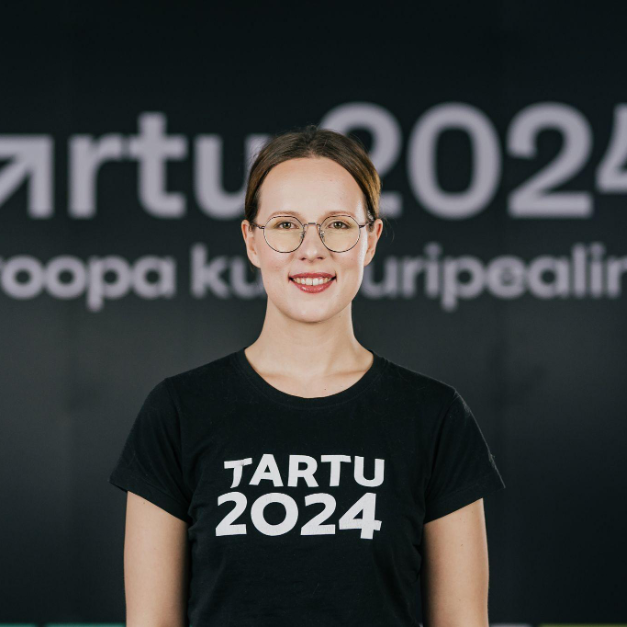
Author Angela Ader is Tartu 2024 education Project Coordinator and Tartu 2024 Extended programme leader.
BLOG by 16-year-old Stella Seim, February 2023
Tartu 2024 Extended´s fifth meeting – from communication to glitter
On February 18, the fifth meeting of the Tartu 2024 youth program Extended took place. This time the main theme of the day was marketing. Merili Ginter, Kerli Peetsalu, Laura Grigorjan and Kaidi-Lisa Kivisalu came to speak and hold workshops at the mission. Stella Seim shared her thoughts about the day.
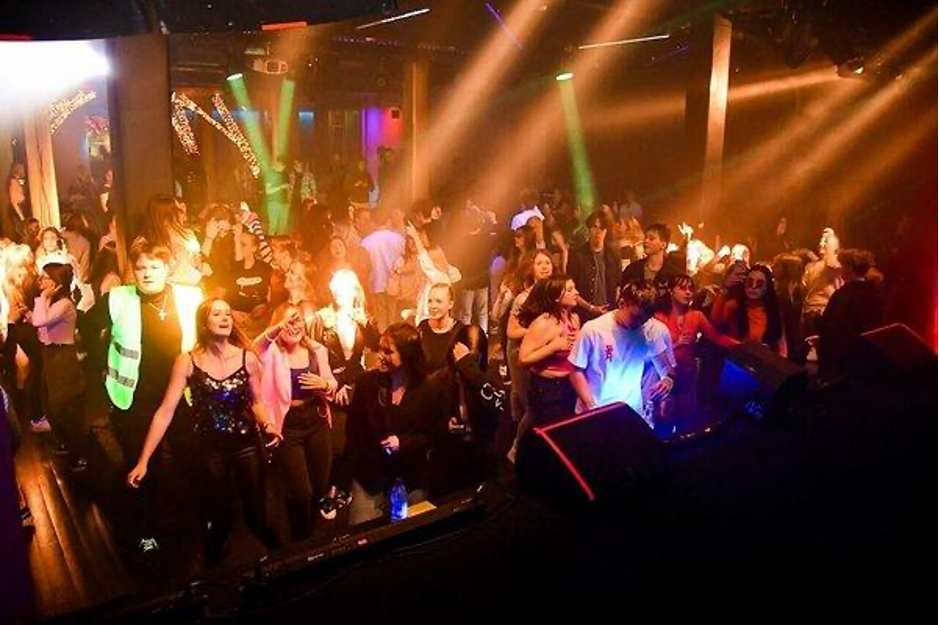
The day started with a great introduction, where we received tips for organizing a sustainable event from Impact Day’s main organizer, Merili Ginter. Merili told us how she got into organizing events and shared her experiences. It was very nice to meet her. Her positive attitude and joy provided a warm atmosphere for the whole day.
In the social media workshop, we took a closer look at what goes into making Instagram and Facebook posts. We took away interesting ideas on how to create eye-catching and memorable content. We found out, for example, that if you put several pictures on Instagram in one post, you will appear twice in people’s feed.
In the design workshop, we could review the visual language of our event with our teams. We chose colors for the event and created a poster. We got interesting tips on how to market the event well and stand out to people.
In the communication workshop, we summarized the content of our event and made sense of it so that we would be the bosses of our own event and know the exact goal. We learned about news values and how to use them to promote an event and make it attractive. The media takes into account the fame, topicality, influence, freshness, unusualness and conflict of the participants. At home, we were tasked with writing a press release for our event.
At the end of the day, we all ate together in the Tartu University cafeteria. The evening ended with the Tartu Youth Party organized by our wonderful Extended program girls. At the party, you could sing karaoke, have your face painted with glitter, enjoy bubble tea and listen to rapper säm. There was a lot of activity, there was never a moment of boredom, and the event was a great success. Many thanks to the organizers!
The whole day was filled with a lot of useful knowledge and ideas that we can use in our future life and projects and that will help our events reach many people.








